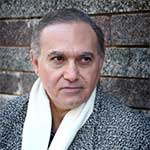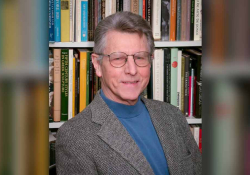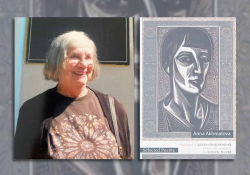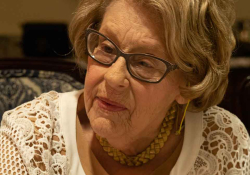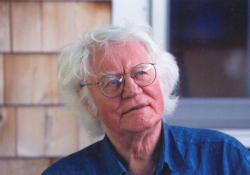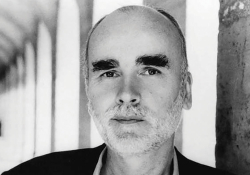Letter to Salma
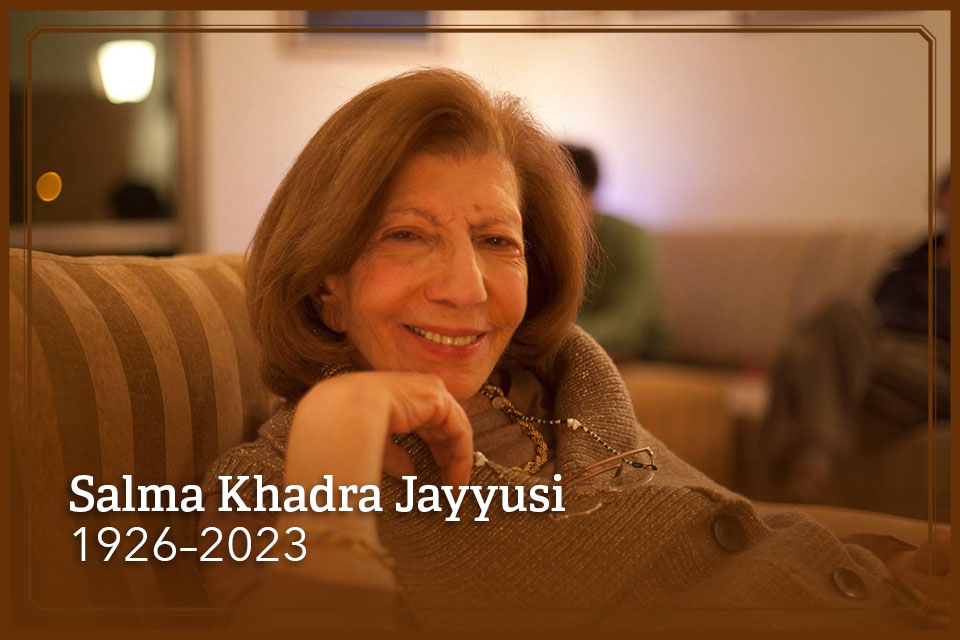 In the following tribute, Yousef Khanfar pens a letter to the eminent scholar Salma Khadra Jayyusi, laureate of the 2021 Palestine Prize for Literature, who passed away on April 20, 2023.
In the following tribute, Yousef Khanfar pens a letter to the eminent scholar Salma Khadra Jayyusi, laureate of the 2021 Palestine Prize for Literature, who passed away on April 20, 2023.
Dear Salma,
From a native son of Palestine to a native daughter of Palestine, I am writing to you this letter on May 15, 2023, on the seventy-fifth anniversary of Nakba Remembrance Day.
I met you, many years ago, in a large bookstore in London. You were standing up, strong in silence, and you were holding up Dostoevsky on one side and leaning against a copy of the Arabian Nights. I gazed at you as a young man full of questions, and you extended your welcoming hands. We sat together at a nearby table to have tea. You allowed me to travel through your pages and listen to your vast voices. I galloped through your lines of poetry like a racing horse, with your pen traveling faster than my thoughts.
Later on, I bought more and more of your books. I wanted to discover more of you, and in essence, I was discovering more of myself. You wrote with a simple pen but with towering courage. And when I look back at your journey, I came to the understanding that your life refuses summation.
I wondered, with your rich body of work, when did you find the time to write?
I saw you most happy at home within the cluster of your family. I saw you write in the morning. I saw you write in the evening. I saw you write in between. I saw you steal every chance you could, like a thief. I saw you steal time to write, not for yourself, but for us, your extended family.
And despite the colonization of our homeland, Palestine, and despite the injustice against our people to the point of suffocation, you still wrote your soul down. It was not only poetry that you wrote but more of a song of life, the sublime song of songs. Poetry out of chaos, poetry of victory, poetry that invited life over death.
Then you reminded us about the beauty of our language, the Arabic language. You reminded us about her majesty. You refused to be selfish and keep it to yourself, insisting, instead, on sharing it with the whole world. You asked us to share our native tongue, to throw it into the throes of translation. And after a while, Americans, Europeans, and the like, when they finished reading our translated Arabic poetry, they also felt something like what we felt, slightly intoxicated.
You reminded us about the beauty of our language, the Arabic language.
In the beginning, I refused to see our poetry being translated. I did not want our language to be under colonization. I did not want our poetry to take on a different identity. I wanted to keep our own identity, for this is the only thing left to us. I did not want it to live in a hyphenated world. I wanted to keep it special. Because when you read Arabian poetry, it is the only poetry in which one can hear music. I did not want to lose the flames of the poet and be left with the ashes of translation.
But now, Salma, I understand your message. And I respect it. It is not only our language you wanted to share. It was also to allow our culture to meet different cultures. It was because you wanted us to have a seat at the table. You wanted us to have a voice locally and globally. And, I promise you, we are doing more and more translation today than yesterday. We will continue to trust the flame and follow the path.
When I looked deep into the wells of your soul, I knew you were a worshiper of liberty and a friend of the oppressed. You believed love was the only religion, and humanity the only temple. Your words march onward proudly in iron shackles. An ambience of inspirational beauty predominates in your books—books that expand our horizons, books that unfold with radiance, books with many vistas to enjoy at our leisure.
One of the most beautiful things to me was, when you wrote about poetry and literature, it was as if you were building a house, but when you wrote about our beloved Palestine, it was as if you were building a nation.
When you wrote about our beloved Palestine, it was as if you were building a nation.
As you know Salma, Palestinians usually eat freedom for breakfast, justice for lunch, and at dinner enjoy the delicious cuisine of humanity, with slices of poetry for dessert. And in every occasion, we always enjoy the aroma of your sweet pen. You gave us back ourselves, and you breathed pride into our souls.
You were not only writing and assembling anthologies for the ages; you were also assembling our crown. You gifted us with a crown, and you crowned us.
I shall not say goodbye to you. I know your spirit will always hover over us to protect us.
And I believe our mortal heart is full of endless passion;
It knows that life’s journey is only a part and not the whole,
Knows how to love again despite all agonies,
Knows how to endure despite all tribulations,
Knows how to flourish despite all melancholies,
And most of all, our mortal heart knows that
Even death is nothing but a short absence,
And we shall meet again.
My dear Salma, I salute you, first of all, last of all, and heart of all. God bless you.
Your faithful
Yousef
President
Palestine Prize Foundation
Editorial note: Two of Salma’s poems, “Khartoum” and “Uprooted,” translated by her daughter, appeared in the Palestine Voices issue of WLT, which Yousef Khanfar guest-edited (Summer 2021). Her Modern Arabic Poetry: An Anthology (Columbia University Press, 1987) was nominated for inclusion in WLT’s “50 Years of Literary Activism” readers’ poll in 2019.
